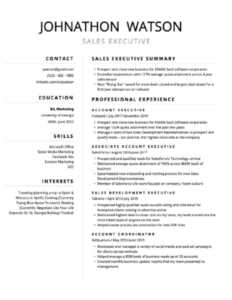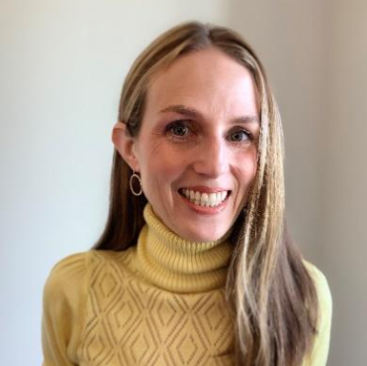Cheryl Proska from Friends Life Care Joins Slutsky Elder Law as a Guest Contributor
Building Your Retirement Resume
You’ve worked hard for your retirement. You deserve to enjoy it. You’ve probably saved, made travel plans, and are looking forward to spending more time doing what you love best. However, once the honeymoon phase of retirement wears out, many individuals are left wondering, what’s next?
Getting the most from retirement is hard work. But it’s also a new beginning — a blank page ready to be filled with new headlines and stories written with a newfound purpose and desire to see the days ahead of you as the best days of your life.
Jotting it Down
 When you started your career, you pursued new experiences and built up your network of peers. You learned new things, honed skills, and put much energy into developing new capabilities. And you put them together in a document highlighting your background, talents, and accomplishments. In retirement, we can benefit from reflecting on similar things. The goal is different. The retirement resume helps us to really master the retirement years. It can take work to create the future you want.
When you started your career, you pursued new experiences and built up your network of peers. You learned new things, honed skills, and put much energy into developing new capabilities. And you put them together in a document highlighting your background, talents, and accomplishments. In retirement, we can benefit from reflecting on similar things. The goal is different. The retirement resume helps us to really master the retirement years. It can take work to create the future you want.
You can simply journal your ideas and feelings. It is easy to follow the outline below and write the first things that come to mind. Or you can literally use a free resume template available online to organize your thoughts in a resume-like format.
Your Retirement Vision
So, let’s build your retirement resume to ensure your days are filled with purpose, enjoyment, and the things you enjoy most.
Summary: Begin with a summary or objective statement highlighting your retirement vision. And add in ways to continue to learn and challenge your mind.
Education
Schooling: What subjects and extra-curricular activities did you enjoy throughout your education? What was your college major or concentration? What academic accomplishments brought you pride? Maybe you won the school science fair or spelling bee. Your earlier interests and victories may indicate educational opportunities to pursue now.
Lifelong Learning: Do you want to learn a new language, expand your technical skills, or pursue creative
writing? Google Osher Lifelong Learning Institute (OLLI) to find opportunities for intellectual
development, cultural stimulation, and social interaction for adults aged 50+ in your area.
Your Retirement Calling
Experiences: What will you occupy yourself with? How will you fill your days and gain new experiences?
Your Home: Where do you want to live? Do you want to upsize, downsize, or stay where you are? Are there second home locations you’d like to investigate? Be sure to consider things like safety, maintenance, and home accessibility in your decision-making.
 Fitness: How might you stay healthy, independent, and fit as you age? There are many ways to adapt fitness routines from early to older age. For example, many older adults opt for pickleball instead of tennis. Walking on an incline is an excellent workout, especially as running may become less optimal.
Fitness: How might you stay healthy, independent, and fit as you age? There are many ways to adapt fitness routines from early to older age. For example, many older adults opt for pickleball instead of tennis. Walking on an incline is an excellent workout, especially as running may become less optimal.
Volunteering: If you have been involved in volunteer activities, what are they? Do you wish to continue contributing or increase your involvement? Are there other opportunities you want to explore?
 Travel: Where have you always wanted to go? Perhaps there are places you’d like to revisit or geographically distant family and friends you’d like to see. Need ideas? Book a trip with Roads Scholar, a community of travelers over 50 from diverse cultural and professional backgrounds.
Travel: Where have you always wanted to go? Perhaps there are places you’d like to revisit or geographically distant family and friends you’d like to see. Need ideas? Book a trip with Roads Scholar, a community of travelers over 50 from diverse cultural and professional backgrounds.
Interests: What makes you smile? Are there things that you do that make time whiz by? Where is your happy place?
Passions: What are they? Consider your adolescence. What did you love to do? How can your earlier passions be incorporated into adulthood and your retirement vision?
Talents: Where do you shine? What are you most proud of? Consider your accomplishments and how they can be utilized.
Hobbies: How do you spend your free time now? What interests and activities do you enjoy? Are there interests you’d like to try but haven’t had the time or opportunity?
Foundation of Your Success
Skills: If you wish to explore an encore career or part-time employment, examine your skills relevant to the type of work you seek. Include both technical and transferable skills gained throughout your career and life.
Socialization: National Institute on Aging (NIH) reports that social isolation and loneliness in older people pose health risks like high blood pressure, heart disease, obesity, and cognitive decline. What are your plans to stay connected to friends, family, and community as you age? What will you do if your health or mobility changes and limits your ability to venture out as much as you’d like?
Health:
1. Assess your current health and any lifestyle adjustments you’d like to make.
2. Factor in your family history and chronic conditions that need to be monitored.
3. Analyze healthcare costs and explore options like Medicare, long-term care insurance, and Friends Life Care membership.
Finances:
1. Assess your current financial situation.
2. Evaluate your income, savings, investments, and debts.
3. Consider consulting a financial advisor for a comprehensive assessment.
4. Develop a budget that aligns with your retirement goals and allows you to live comfortably and within your means.
5. Aim to pay off debts and plan to review and adjust your plan accordingly.
Long-Term Care: Nearly 70% of people over age 65 will experience a life-altering health event requiring some long-term care. What is your plan for long-term care? How will you cover the costs? Who will coordinate your care, navigate the complex healthcare system, and communicate with your loved ones? Friends Life Care membership provides all of this and more. Visit FriendsLifeCare.org to learn more about how membership helps you age in place and provides the safety net you need to maintain your vitality, independence, growth, and resilience throughout your retirement journey.
Friends Life Care is a nonprofit Quaker organization that offers a unique alternative to long-term care
insurance or moving into a facility. Our members rely on us to help them assess their current health and
wellness goals and collaborate with them year after year as trusted partners in aging in place.
 Contributed by: Cheryl Proska, Friends Life Care Marketing Director.
Contributed by: Cheryl Proska, Friends Life Care Marketing Director.
Cheryl has been working with Friends Life Care since 2018. As part of the Sales & Marketing team, Cheryl helps build brand awareness, generate leads, and achieve sales goals.
Cheryl brings extensive experience in email marketing, website development, content creation, social media, and project management. Cheryl also hosts the organization’s podcast, Honestly Aging, by VigR Health.
Cheryl has a BS in Journalism from The Pennsylvania State University and an MS in Organizational Development and Leadership from Philadelphia College of Osteopathic Medicine.
Cheryl is passionate about diversity, equity, inclusion, and belonging, as well as compassionate leadership. She is part of Friends Life Care’s DEIB task force and Leadership team.
Cheryl may be reached at 215-628-8964, ext. 251 or cproska@flcpartners.org. Check out FriendsLifeCare.org to learn more about how a membership with Friends Life Care can help you age in place and allow you to maintain your vigor, independence, and resilience throughout your retirement journey.

